Past Fellows
Meet a few of our past fellows!
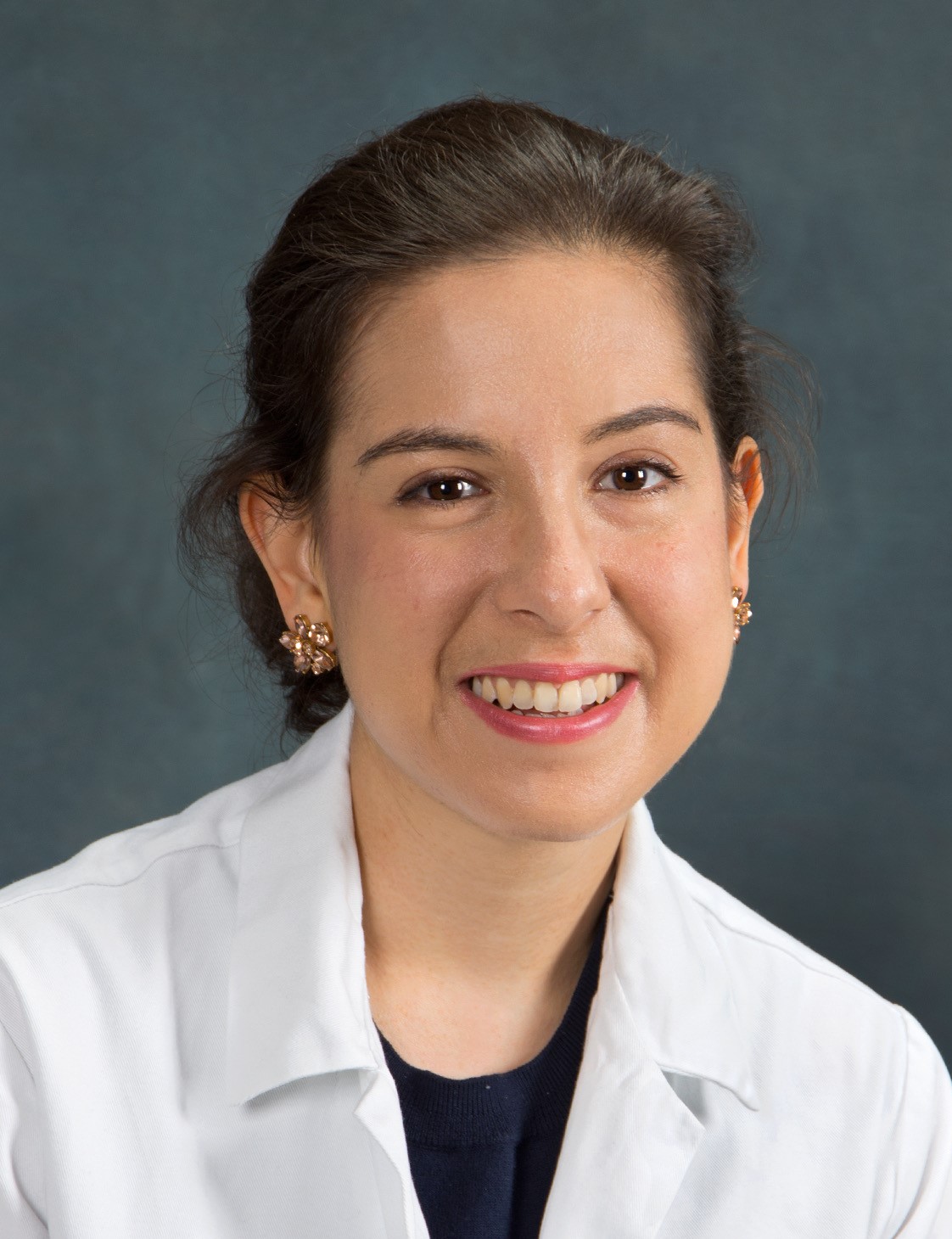
Nina Akbar, MD
Fellowship Period: 2019 - 2020
Fellowship Track: Independent Investigator
Dr. Nina Akbar is a board-certified Infectious Diseases physician, completing her clinical subspecialty training at the University of Rochester Medical Center in 2019. During her clinical fellowship, she investigated how provider antibiotic prescribing behaviors could prevent the creation and propagation of infections with multidrug-resistant organisms (MDROs) in high-risk populations and led initiatives in outpatient antimicrobial stewardship.
Professional Interests and Goals: Dr. Akbar's research interests are in the areas of emerging MDROs as related to healthcare-associated infections (HAIs), infection prevention and antimicrobial stewardship programs. Her goal is to become a health services researcher and infectious diseases clinician with expertise in evaluating, designing, and implementing decision-making and communication models for the access and delivery of specialty care for Veterans in order to improve patient experiences and outcomes.
Why did you apply to the HSR Fellowship with CIVIC?
"I saw opportunity in the Portland VA's HSR Advanced Fellowship program to support my path towards becoming a physician-scientist with its fellow-focused curriculum and experiential learning methods, fostering young investigators' growth towards acquiring grantsmanship skills and sponsoring a platform to apply for early career research development awards."
What have you gained from the Fellowship program?
"As a fellow, you are integrated within a unique multidisciplinary research collaborative through the Center to Improve Veteran Involvement in Care (CIVIC), introducing you to a professional network of VA investigators who work with you notonly to help serve Veterans in Oregon and southwest Washington, but also across the United States."
What projects did you work on? How did they lead to your career today?
"My projects included looking at ways to reduce HAIs by understanding antibiotic utilization, infectious disease specialty care engagement processes, and provider-directed decision support interventions for the tracking and prevention of MDRO transmission. I also worked on a project focusing on patient-physician communication and decision-making experiences to direct patient-centered outcomes."
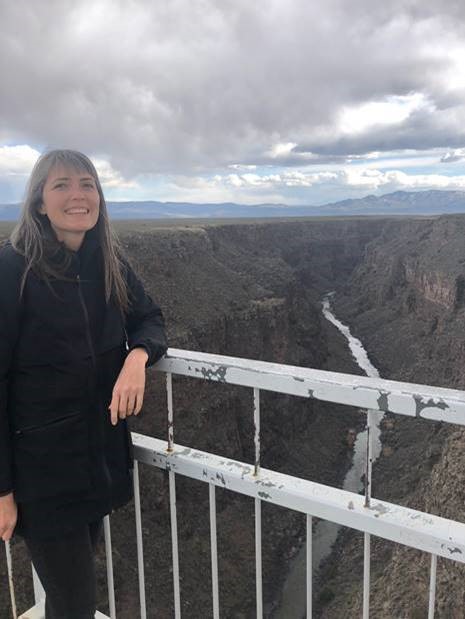
Laura Coco, PhD, AuD
Fellowship Period: 2021 - 2022
Fellowship Track: Independent Investigator
Dr. Laura Coco completed her doctor of Audiology (AuD) degree at the University of Texas in 2015. Dr. Coco completed her PhD in Speech, Language, and Hearing Sciences at the University of Arizona in 2021 with a graduate minor in Public Health. Dr. Coco received the National Institutes of Health/National Institute on Deafness and Other Communication Disorders (NIH/NIDCD) F32 award and the New Century Scholar's Award from the American Speech-Language-Hearing Association Foundation to complete her PhD dissertation.
Where Are They Now?: Assistant Professor in Speech, Language, and Hearing Sciences at San Diego State University
Professional Interests and Goals: "My research aims to improve access to hearing healthcare for older adults with hearing loss, particularly in underserved communities. I use both qualitative and quantitative methods to develop, implement, and evaluate interventions and service delivery models to improve access to care. I am interested in evaluating patterns of health services use among rural Veterans with hearing loss, identifying gaps in service delivery, and developing solutions that enable more connected care."
Why did you apply to the Fellowship with CIVIC?
"I applied to the HSR fellowship with CIVIC because I wanted to work with a multidisciplinary team of investigators who are dedicated to health services research. Additionally, I was interested in the CIVIC fellowship because it offers a diverse community of mentors, collaborative research opportunities, and unique training opportunities."
What projects are you or will you be working on?
"My current projects include evaluating the association between Veterans' severity of tinnitus and their history of traumatic brain injury. I am also working on a project that investigates the impact of tinnitus and traumatic brain injury on participation in work among Veterans."
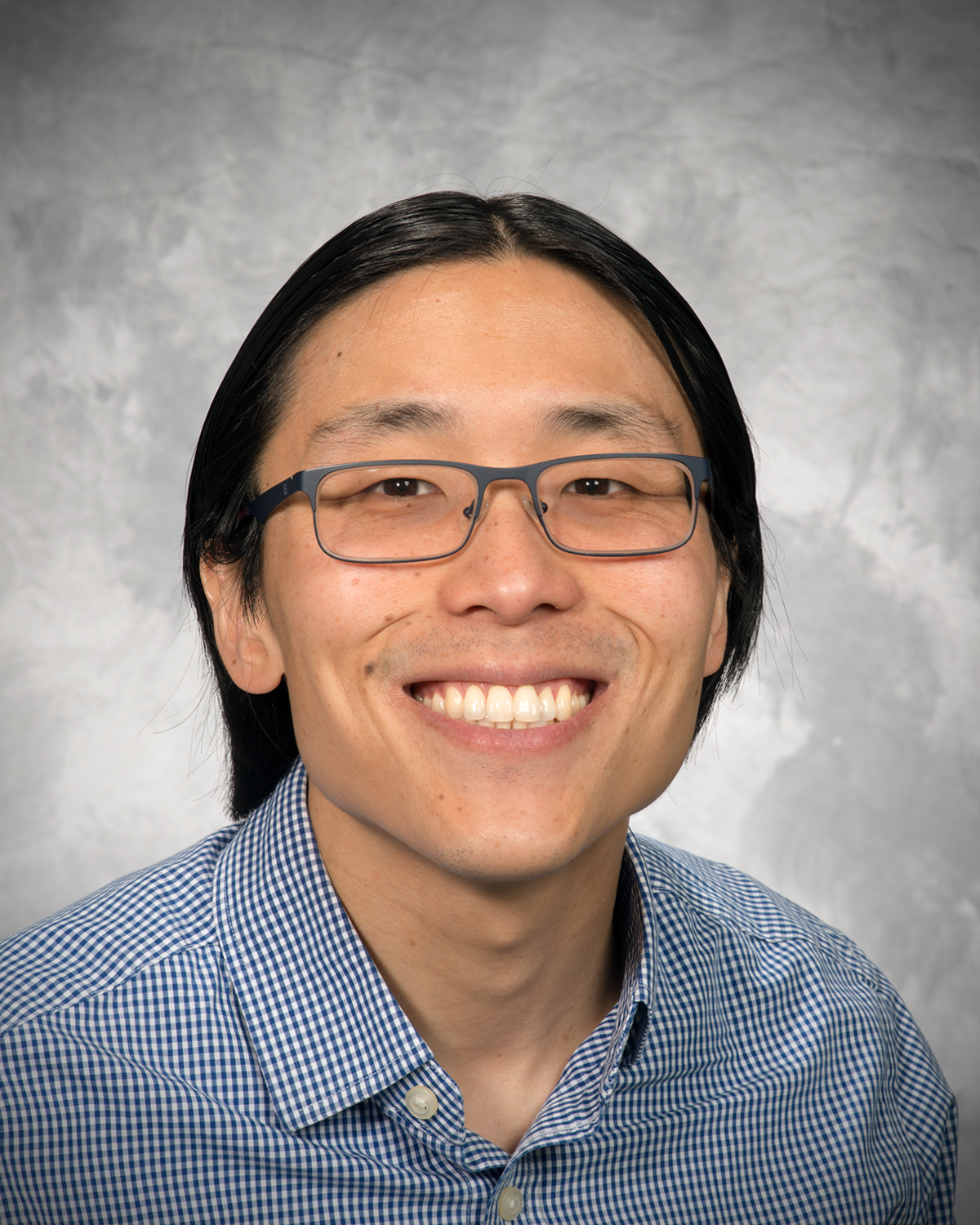
Jason I Chen, PhD
Fellowship Period: 2016 - 2018
Fellowship Track: Independent Investigator
Dr. Jason Chen received his PhD in Clinical Psychology from the University of South Florida in 2016 where he focused on mechanisms of suicide risk and the implementation and dissemination of suicide prevention programming. He completed his APA-accredited, pre-doctoral internship at the Denver VA Medical Center.
Where Are They Now?: Core Investigator, CIVIC
Professional Interests and Goals: Dr. Chen's research is on improving the translation of suicide research into clinical practice. His specific areas of focus include high risk populations, community-based approaches, and help-seeking processes. He is especially interested in developing new interventions informed by Veteran and clinician perspectives. During the fellowship, he focused on expanding his intervention development and evaluation skills. Following fellowship, Dr. Chen became a VA clinical researcher funded on a VA HSR Career Development Award.
Why did you apply to the HSR Fellowship with CIVIC?
I was excited to continue developing my research skills with a focus on Veteran-specific, applied research. I was also impressed by the collegial atmosphere at CIVIC, and the strong value placed on how better understanding Veteran experiences can enhance quality of care.
What have you gained from the Fellowship program?
I have really enjoyed working with my mentorship team which includes Dr. Denneson, Dr. Dobscha, and Dr. Teo. They have worked with me to consider different project ideas from multiple lenses and within the broader health services context.
What projects did you work on? How did they lead to your career today?
I collaborated with my mentorship team on several secondary data analysis projects including manuscripts focused on enhancing Veteran engagement in care and understanding treatment processes. In addition, I worked with my mentors on writing my HSR Career Development Award application which focused on bolstering protective factors among Veterans at elevated suicide risk. I started my VA HSR CDA in July and am now a CIVIC Core Investigator.
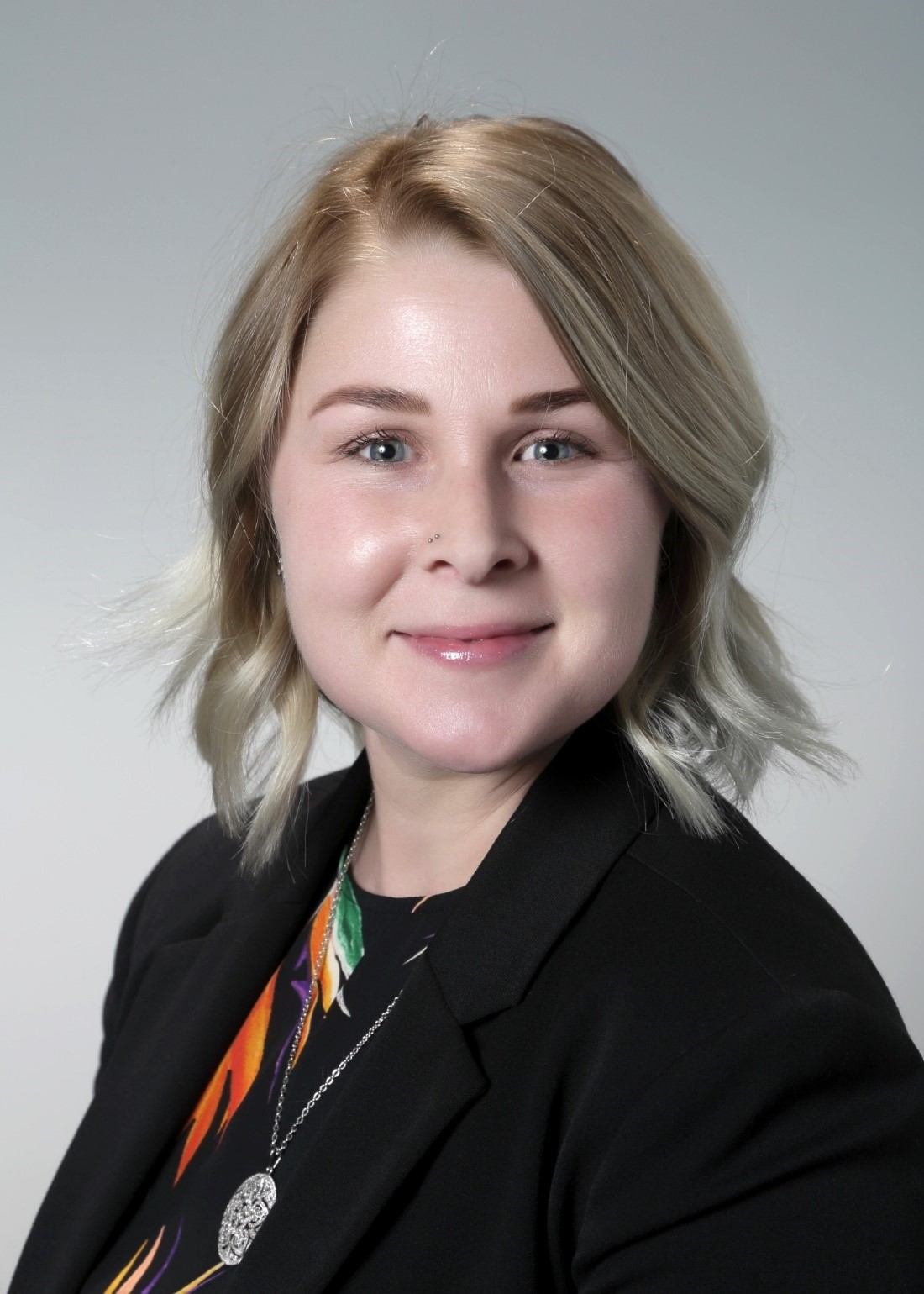
Diana Govier, PhD
Fellowship Period: 2020 - 2021
Fellowship Track: Independent Investigator
Dr. Diana Govier completed her PhD in Health Policy from Oregon State University in 2020. During her doctoral training, Diana received content and methodological training as a Graduate Fellow under an AHRQ dissertation grant for which she studied the impacts of Oregon's health system transformation to Coordinated Care Organizations on healthcare utilization, quality, and spending among Medicaid-enrolled children with comorbid mental and physical health conditions. Diana also taught undergraduate courses and worked as a research assistant on projects that examined 1) the extent, determinants, and potential solutions to emergency department (ED) boarding of psychiatric patients; 2) the state of Oregon's Skilled Nursing Facilities including trends in occupancy, healthcare utilization, and facility quality; and 3) the effects of non-opioid pain management clinics on patient health and organizational outcomes.
Where Are They Now?: Health Services Researcher, VA Portland
Professional Interests and Goals: Diana's research interests include understanding 1) the healthcare and related experiences of individuals with medical complexity and/or mental health conditions, including how they access / utilize care and their subsequent health and healthcare outcomes; 2) how and what health systems and policy reforms improve access to / quality of care and health / social outcomes; and 3) the design and implementation of alternative and value-based payment and care delivery models as they relate to healthcare efficiency and performance at the provider and systems levels. Her primary goals are to develop the expertise and skills required to be an independent investigator that contributes value to the field of health services research as well as to use and learn leading econometric and statistical methods for causal inference in observational research.
Why did you apply to the Fellowship with CIVIC?
"I applied to the HSR Fellowship with CIVIC for several reasons. First, CIVIC investigators' lines of scientific inquiry--implementation and outcomes of care coordination and advanced primary care models; healthcare utilization, access, quality, and costs for populations with medical and social complexity--closely align with my research interests, and having the opportunity to work with and learn from HSR leaders and experts at CIVIC will undoubtedly build my content and methodological knowledge. I am also very excited about the targeted mentorship that the CIVIC Fellowship provides. My primary mentor, Dr. Denise M. Hynes, and I have developed a mentorship plan that includes learning how to lead collaborative research teams, developing larger-scale, mixed methods research projects and obtaining funding for those projects, working with new types of clinical and administrative data and data systems, and navigating a potential career as a HSR researcher at the VA. Beyond that, I'm excited to develop professional relationships with CIVIC's and other VA COIN HSR researchers."
What projects are you or will you be working on?
"I am currently working on projects that stem from my dissertation research. Shortly, I will be strarting work on a project that is already underway investigating the effects of a targeted care coordination intervention on healthcare utilization and quality among Veterans. I will also be starting a project comparing healthcare costs among Veterans who receive care within VA provider systems with those who receive the preponderance of their care from community providers. In addition, my primary mentor in the HSR Fellowship has started research on sequelae related to COVID-19 among Veterans who have contracted and recovered from the disease. I am excited to be a part of that work as well. Beyond that, I am eager to learn even more about the research being conducted at CIVIC, and am thrilled to have opportunities to work with CIVIC investigators on their many important areas of research to improve the care experiences and lives of Veterans."
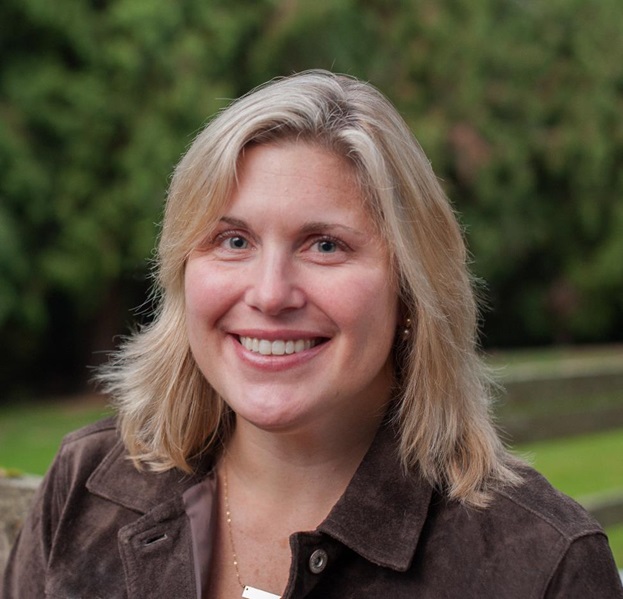
Haley Holmer, PhD
Fellowship Period: 2020 - 2021
Fellowship Track: Evidence Synthesis
Dr. Haley Holmer completed her PhD in Epidemiology from the Oregon Health & Science University - Portland State University (OHSU-PSU) School of Public Health in 2019. During her doctoral training she also completed the OHSU Clinical and Translational Research Institute TL1 Predoctoral Fellowship program. This fellowship emphasized methodologic training in basic science translational research and funded her dissertation project, which evaluated the metrics used by the Centers for Disease Control and Prevention (CDC) to assess antibiotic utilization in order to improve patient care and safety.
Where Are They Now?: Investigator/Lead Scientist, Evidence Synthesis Program Coordinating Center, VA Portland
Professional Interests and Goals: My research interests are in the areas of evidence synthesis and guideline development methodology, as well as meta-research. Currently, I am interested in rapid reiew methods and the reproducibility and validity of conclusions drawn from evidence reviews conducted within a compressed timeline.
Why did you apply to the Fellowship with CIVIC?
I applied to the HSR fellowship to receive advanced training in evidence synthesis methodology. The fellowship's evidence synthesis tract, in partnership with the VA Evidence Synthesis Program Portland site, provides an exceptional opportunity to train with experts in evidence synthesis and to receive hands-on training across a variety of evidence synthesis projects.
What have you gained from the program so far?
Shortly after my fellowship started, I had the unique opportunity to work with the World Health Organization (WHO) conducting rapid reviews for the COVID-19 emergency response. I have received valuable mentorship from CIVIC's Drs. Devan Kansagara and Mark Helfand on rapid review methodology while immersed in the WHO evidence synthesis efforts.
What projects are you or will you be working on?
In addition to my work with the WHO, I have also worked on a VA systematic review on chronic pain in Veterans with mild traumatic brain injury. Currently, I am participating in the Agency for Healthcare Research and Quality task force charged with updating guidance for Evidence-based Practice Centers on the use of observational studies in systematic reviews. Specifically, the task force is developing guidance to improve the consistency of methodological approaches and reporting standards for inclusion of observational studies in a body of evidence. The resulting guidance will help the VA's Evidence Synthesis Program, as well as non-VA entities like the WHO, use scientific evidence that is informative but may not yet meet the level of that form randomized controlled trials.
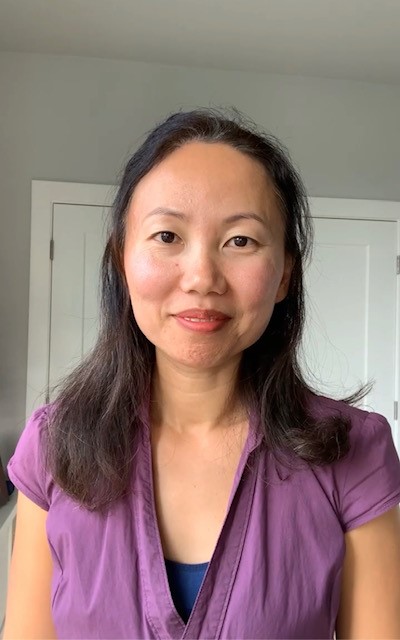
Qian Leng, MD, MPH
Fellowship Period: 2021 - June 2023
Fellowship Track: Independent Investigator
Dr. Qian (pronounced "chee-an") Leng is a board-certified internal medicine physician who completed her MD/MPH at Harvard University and her residency at Oregon Health and Science University. She has been a practicing hospitalist for the past 8 years. She has worked at Kaiser and Legacy Health as a teaching attending.
Professional Interests and Goals: Qian is interested in yoga and mindfulness research. She is also passionate about prenatal health and alleviating health disparities. Qian has been a yoga and meditation teacher for 13 years. She would like to do research that addresses mental and physical wellbeing from a holistic perspective. Qian is also trained as an acupuncturist. She is not sure yet if she would like to focus on research and become a PI one day versus incorporating research into her clinical career. Mentoring medical students is also an important aspect of her work.
Why did you apply to the Fellowship with CIVIC?
Qian applied to the HSR Fellowship with CIVIC to be able to research how to improve the way that health care is delivered, especially in terms of using nonpharmacologic ways to improve health. She was also the advisor to the case management department at Legacy and would like to research ways to improve the delivery of hospital medicine and coordination of care for discharged patients./p>
What have you gained from the program so far?
Qian has been learning how to work with data sets and conducting qualitative research. She has been networking with various researchers at the VA and OHSU who are doing wonderful work in the areas that she is interested in and it excited to become involved in these projects.
What projects are you or will you be working on?
"I will be looking at dyad outcomes for partners of patients with lung cancer who underwent a pilot study of yoga as an intervention for improving mental wellbeing and physical limitations with Dr. Don Sullivan. I will also be researching the outcomes of home-based primary care at the VA with Dr. Sam Edwards. A third project I will be working on is investigating the relationship between prenatal mental health outcomes and the provisions of mental health support for BIPOC pregnant people with Dr. Alice Graham."
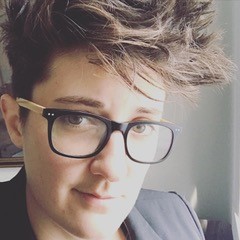
Abby Mulcahy, PhD, MPH
Fellowship Period: 2021 - 2024
Fellowship Track: Independent Investigator
Dr. Abby Mulcahy is an Office of Academic Affiliations Health Systems Research and AcademyHealth Delivery System Science fellow at the Center to Improve Veteran Involvement in Care at the VA Portland Health Care System.
Dr. Mulcahy completed their PhD in Public Health at Oregon State University in 2021 with a graduate minor in Women, Gender, and Sexuality Studies. Dr. Mulcahy received the S. Marie Harvey Sexuality and Reproductive Health Fellowship to complete their dissertation.
During their doctoral training, Dr. Mulcahy was an instructor of record in public health courses, including Introduction to the US Healthcare System and Introduction to US Health Policy, and on the leadership team for the Human Services Resource Center. In addition, Dr. Mulcahy worked as a graduate research assistant under Dr. Megan Cahn at the Legacy Research Institute and as the executive director of the Corvallis Multicultural Literacy Center.
Dr. Mulcahy holds a BA in political science from the University of Wyoming and an MPH in public health policy and management from Texas A&M University.
Professional Interests and Goals: "My research interests center around three nodes - gender, disability, and aging. I am particularly interested in where these overlap (as well as other multiple-minority groups), healthcare needs, health care use, and resilience.
My goal is to employ a positive deviance framework to identify what tools/strategies/resources make members of multiply-minoritized groups successful and to re-engineer these to improve health equity overall. The VA is the ideal place to do this work due to the volume of longitudinal data available and mentorship opportunities available with researchers already doing this work."
Why did you apply to the Fellowship with CIVIC?
"I applied to join CIVIC, in part, because joining the VA system is a homecoming of sorts. My father served in the United States Air Force. After he retired, my mother became a civil servant. I grew up on military bases, surrounded by servicemembers, Veterans, and their families. Joining CIVIC was a way for me to give back to them using my training in health services research."
What did you gain from your Fellowship?
The VA has the largest dataset in the world on my population of interest. My fellowship at the VA gave me access to that rich data, allowed me to build a strong foundation in my research portfolio, AND allowed me to build a network of exceptional scientists in health services research.
What projects did you work on during your time with the Fellowship?
As a fellow, I worked on a number of different projects. My longest-running collaborations were with Dr. Kathleen Carlson’s community care and rural firearms projects as well as a project focused on quantifying the burden of disease in the Veteran population with Dr. Denise Hynes. In my second year, I received a Small Award for Impact from CIVIC to complete a needs assessment for LGBTQ+ Veterans at the VA Portland Healthcare System (VAPORHCS). In my third year, I completed a quality improvement project funded by the LGBTQ+ Health Program Office to assess primary care for transgender and gender-diverse Veterans at VAPORHCS.
What are you currently working on/what are your future plans?
I am currently leading a quality improvement project funded by the Office of Rural Health focused on rural transgender and gender-diverse Veterans and rural primary care providers. I’m also collaborating with colleagues across VA as a Co-Investigator and Health Equity Methodologist on projects focused on LGBTQ+ affirming Cognitive Behavior Therapy and interventions to reduce suicide risk for minoritized Veterans.
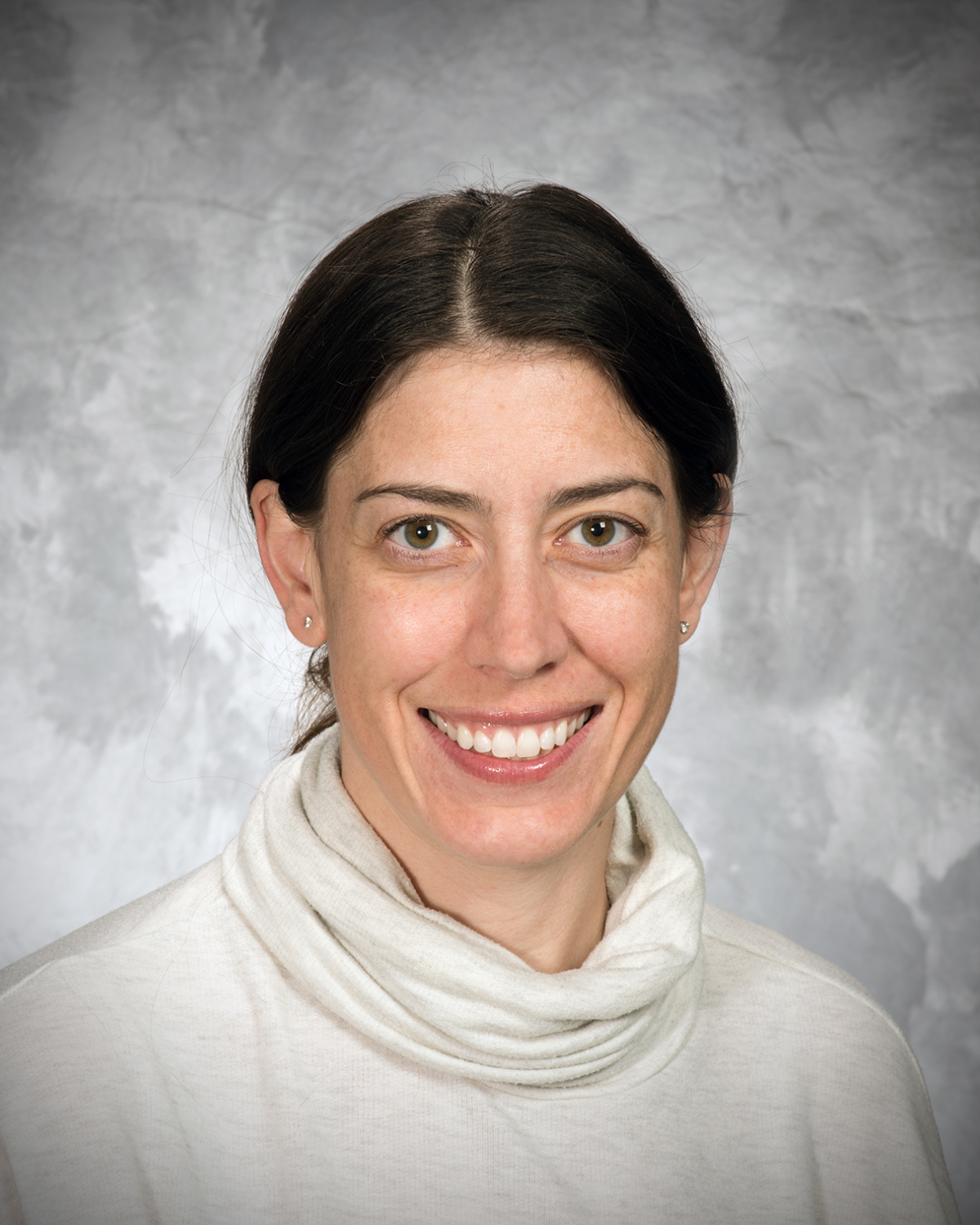
Shannon Madore Nugent, PhD
Fellowship Period: 2016 - 2018
Fellowship Track: Independent Investigator
Dr. Shannon Nugent completed her PhD in Clinical Health Psychology from the University of Colorado Denver in 2015. During her doctoral training she also completed the Colorado Clinical and Translational Sciences Institute TL1 Predoctoral Fellowship program. This fellowship emphasized content and methodologic training in basic science translational research and funded a dissertation research project that examined psychological and neuroendocrine response to caregiving for a significant other with blood cancer.
Where Are They Now?: Core Investigator, CIVIC
Professional Interests and Goals: Dr. Nugent's research interests are in the areas of palliative medicine, psychosocial oncology, and improving access to health care for older adults. In addition, Dr. Nugent provides mental health services to oncology patients within the VA. She is also an Instructor at OHSU in the Department of Psychiatry. Her goal is to become an independent investigator with CIVIC and to continue to work on interdisciplinary teams conducting VA health services research.
Why did you apply to the HSR Fellowship with CIVIC?
I applied to the HSR fellowship for many reasons. Primarily, I was excited to be a part of an interdisciplinary HSR VA research community, which I believe provides a unique training experience. The investigators at CIVIC have a diverse set of methodologic and content expertise that matched well with my interests and training goals. Specifically, I was seeking to gain methodologic training in evidence synthesis as well as with qualitative and administrative data, all of which would facilitate my HSR career trajectory. My husband and I also thought that Portland would be an ideal place to raise our family.
What have you gained from the program so far?
As a result of my participation in this HSR fellowship, I am developing strong data analytics skills through working with large administrative data sets (i.e. Corporate Data Warehouse). I continue to build on an already strong working knowledge of both qualitative data analysis methodologies. I served as a co-investigator with the VA Evidence-based Synthesis Program on a recent evidence synthesis project that examined the benefits and harms of cannabis for chronic pain and PTSD. This experience provided me with training in systematic review methodology. Finally, during my fellowship I have had outstanding research and clinical mentorship from numerous investigators from many different disciplines, which has been incredibly valuable to me as an early career psychologist.
What projects are you / will you be working on?
I am currently working on projects related to medical cannabis use among patients with chronic pain, patient-physician communication and treatment decisions among patients with early stage lung cancer, patient/family experiences seeking physician-aid-in-dying under the Oregon Death with Dignity Act, and POLST utilization in the VA. I am also working on a clinical quality improvement project that will provide local head and neck cancer patients with cognitive-behavioral techniques to manage cancer pain, fatigue, mood, and sleep disruption. This project will likely serve as foundational work for my career development award application.
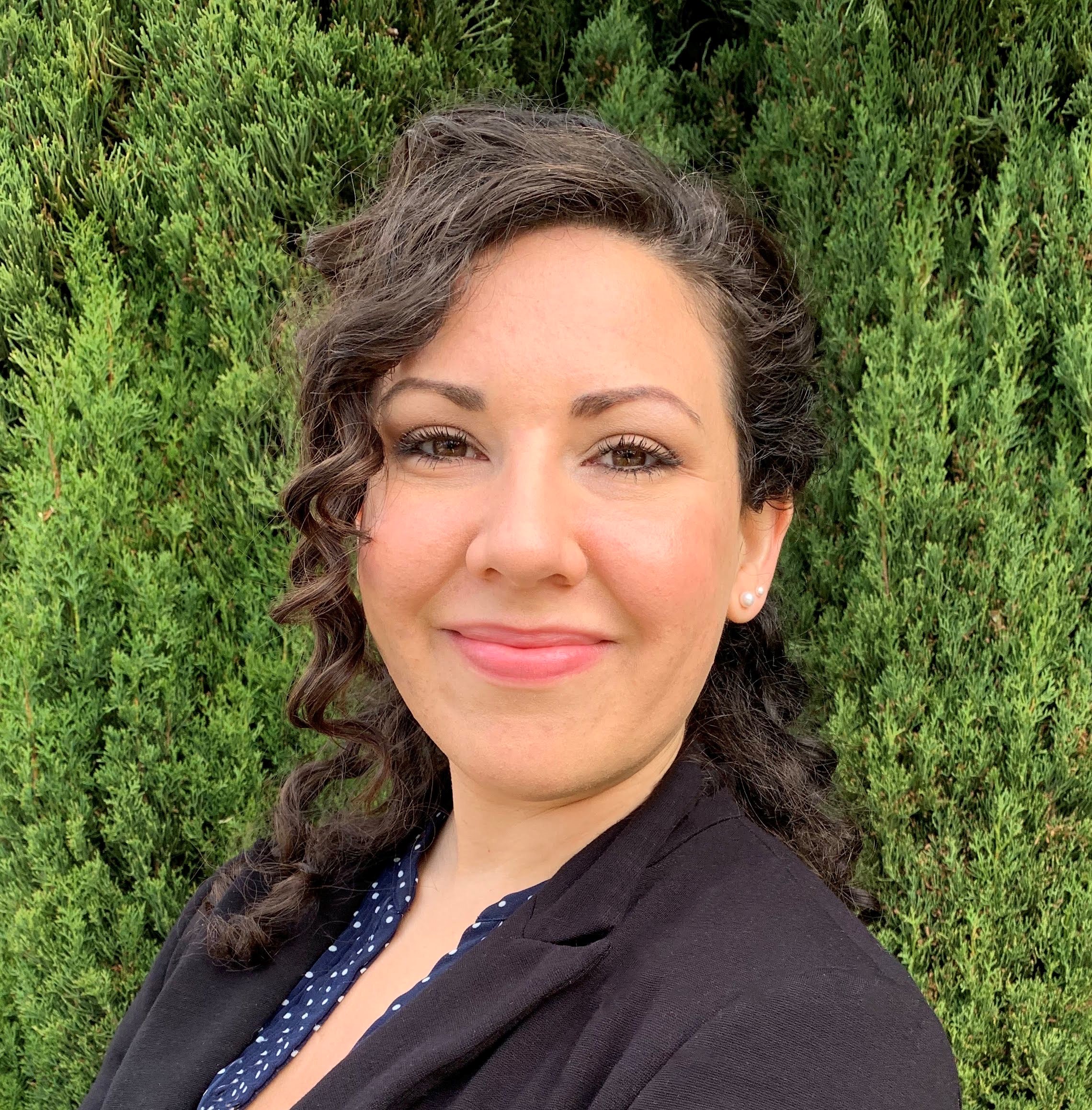
AnnaMarie O'Neill, PhD
Fellowship Period: 2022 - 2024
Fellowship Track: Independent Investigator
Dr. AnnaMarie O'Neill completed her Ph.D. in Applied Psychology with an emphasis in Social Psychology at Portland State University in 2022. Her research has been unified by her passion for understanding social determinants of health (like interpersonal relationships, workplace policies, social inequality). In addition to observational research, she has conducted field experiments to find the most effective workplace interventions aimed at promoting the health and well-being of military employees and their loved ones. In 2020, she worked as a summer associate at the RAND Corporation to bolster the Department of Defense's organizational capacity to prevent military sexual assault as well as to foster an ongoing method to learn about the needs of Army spouses through panel surveys. Throughout her career, she has trained other researchers in statistics such as meta-analysis while she worked as a Psychiatric Research Assistant at the University of Nevada School of Medicine and dyadic intervention analysis (i.e., evaluating an intervention on a linked pair like a couple) during her graduate program at Portland State University. Her volunteer work has included helping callers at the Crisis Call Center by providing immediate crisis intervention, suicide prevention, and child protection referrals.
Professional Interests and Goals: Dr. O'Neill's research interests are focused on two lines of research: 1. Preventing firearm injury and suicide through scalable interventions and 2. Developing more holistic treatments for chronic health problems (particularly chronic pain) that incorporates couple-level intervention components. Her overarching goals are to prevent firearm injury and suicide and to ameliorate chronic health conditions by leveraging close relationships, which play a major role in shaping health and well-being. Veterans are disproportionately affected by these problems and new strategies to address them are needed.
Why did you apply to the Fellowship with CIVIC?
"I was drawn to the fellowship with CIVIC because I am passionate about the research being conducted at CIVIC and I wanted to learn from the incredible investigators here. I wanted to do impactful research that protects and promotes the health of Veterans and their loved ones."
What projects did you work on?
"I worked with Dr. Carlson on designing social interventions to prevent firearm injury and suicide of rural Veterans. In addition, I worked on other projects related to suicide, trauma, chronic health conditions, well-being, gender, and barriers to accessing health care."
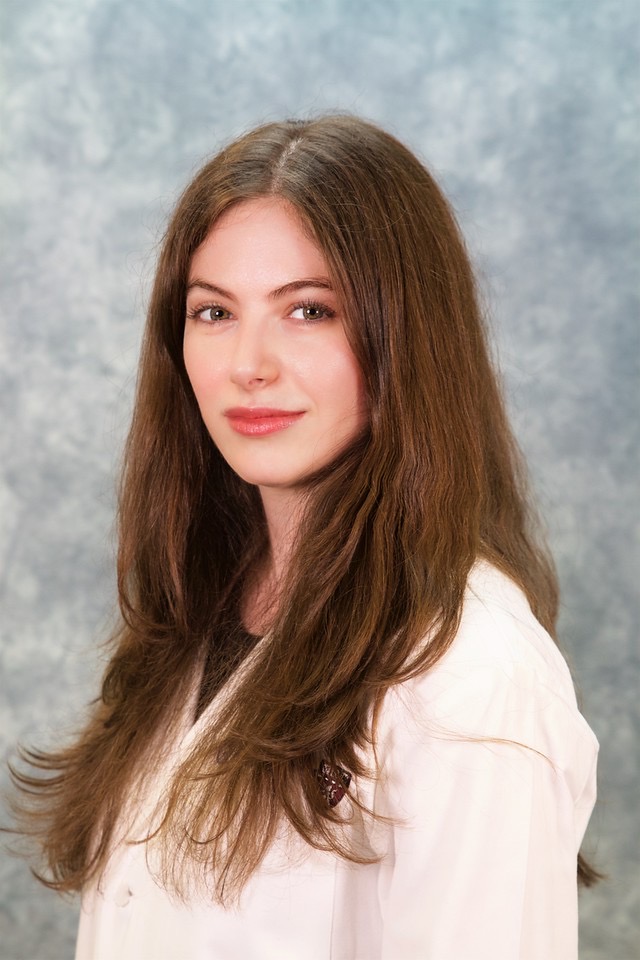
Liana Schweiger, MD
Fellowship Period: 2020 - 2022
Fellowship Track: Independent Investigator
Dr. Liana Schweiger completed her MD from Albert Einstein College of Medicine in 2012 and completed her Internal Medicine residency at Beth Israel Deaconess Medical Center in 2015. She stayed at Beth Israel Deaconess Medical Center as an Academic Hospitalist until 2017, when she and her husband moved to Portland for her Pulmonary and Critical Care Fellowship at OHSU. During her fellowship training, she also completed the Human Investigations Program at OHSU.
Where Are They Now?: Assistant Professor at OHSU and Staff Physician in the VAPORHCS Section for Pulmonary, Critical Care, and Sleep Medicine
Professional Interests and Goals: Dr. Schweiger's research interests are in the areas of lung cancer, end-stage pulmonary disease and palliative medicine, and improving the doctor-patient relationship through patient centered care. In addition, Dr. Schweiger provides lung cancer care to patients within the VA. Her goal is to become an independent investigator within CIVIC and Pulmonary and Critical Care physician with a focus on models improving patient-physician communication, patient experiences and outcomes.
Why did you apply to the Fellowship with CIVIC?
"I applied to the HSR fellowship for many reasons. The fellowship provides a tailored educational experience allowing for exposure, collaboration, and mentorship from the diverse expertise of the investigators at CIVIC. I was excited to be a part of an interdisciplinary HSR VA research community. Additionally, I wanted to continue to care clinically for our veterans after completing my fellowship in Pulmonary and Critical Care Medicine."
What have you gained from the program so far?
"As a result of my participation in this HSR fellowship, I have been introduced to a unique multidisciplinary research collaborative through CIVIC. As part of the fellowship, I am curating a Masters in Clinical Research to best serve my personal training goals in communication and patient-centered care."
What projects are you or will you be working on?
"My current projects include evaluating patient knowledge and perceptions of quality of care, and patient decision-making throughout their lung cancer screening experience. I am also working on a project evaluating the association of lung cancer susceptibility and perceived serious with patient distress and decisional conflict."
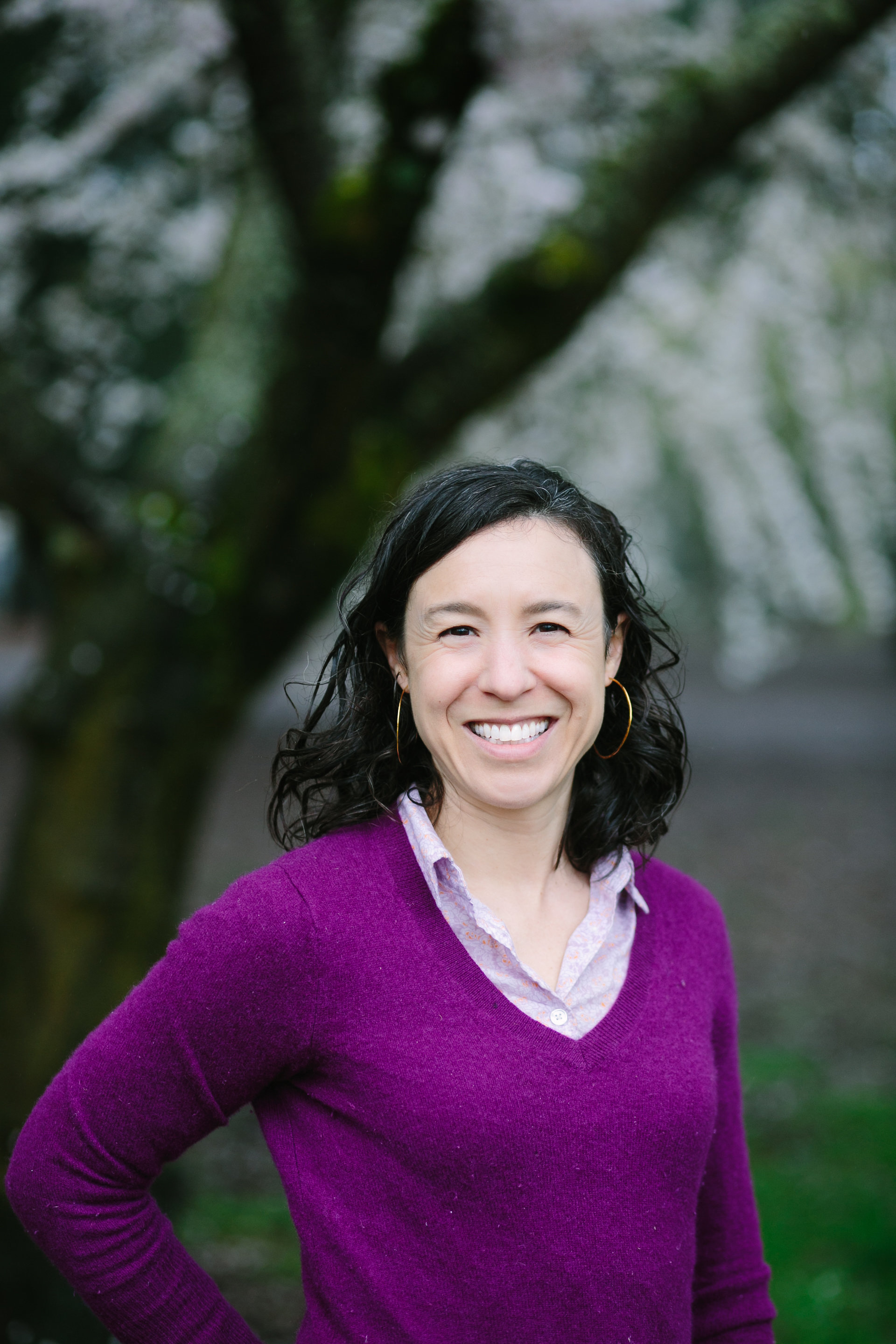
Jessica Wyse, PhD
Fellowship Period: 2016 - 2018
Fellowship Track: Independent Investigator
Dr. Jessica Wyse received her PhD in Sociology and Public Policy from the University of Michigan, Ann Arbor in 2011, where she focused broadly on vulnerable populations, particularly those involved with the criminal justice system. In her research, she found that substance use disorders were extremely common, and a major contributor to individuals' criminal offending and reentry experiences. Her current research focuses on the treatment of substance use disorders (SUDs) among vulnerable populations, and the ways in which evidence-based treatments for SUDs can be made more accessible to those who need them.
Where Are They Now?: Core Investigator, CIVIC
Professional Interests and Goals: Dr. Wyse's research aims to understand how to enhance access to, and delivery of, evidence-based treatments for substance use disorders among vulnerable populations. She plans to continue to pursue this area of research in the future, as well as other topics in health policy and implementation science.
Why did you apply to the HSR Fellowship with CIVIC?
"In my prior work, I saw how devastating substance use disorders could be for those suffering for them--an estimated 1/2 to 3/4 of justice-involved people struggle with substance use disorders. And in a research collaboration between the Multnomah County Department of Community Justice, CODA (a local treatment provider) and the country jail, I learned about effective medications that could be used to treat opioid use disorders, but that nonetheless remained inaccessible to many. This inspired me to shift the focus of my research to health services, where I could research the barriers to expanding the use of these effective medications and design implementation strategies to overcome them. The fellowship presented a great opportunity to make this transition."
What have you gained from the Fellowship program?
"I gained so much from the fellowship! It allowed me the time and resources I needed to successfully transition the focus of my research to addiction treatment and health services research. I received incredible mentorship from CIVIC Investigators--Travis Lovejoy, Ben Morasco, Kathleen Carlson, Linda Ganzini, and many others. With their support I was able to build a strong publication record in health services research and apply for two grants (an OHSU K12 award and VA Career Development Award), both of which were ultimately funded."
What projects did you work on? How did they lead to your career today?
"When I first started at the VA, I wanted to understand how medications were used to treat OUD in VA, and how this had changed over time. Dr. Carlson encouraged me to approach this systematically as a publishable paper, and Dr. Lovejoy encouraged me to partner with national VA leadership in this work. The publication that resulted laid the groundwork for my VA Career Development Award and is already highly cited. I also worked with CIVIC and VA Investigators on projects addressing the intersection of addiction and chronic pain, VA Supported Employment, Pay for Performance within VA, and timely initiation of medication for OUD within HIV infected and uninfected Veterans in the Veterans Aging Cohort Study. These projects helped familiarize me with the landscape of VA programs and services, and identify areas where additional research was needed."



















